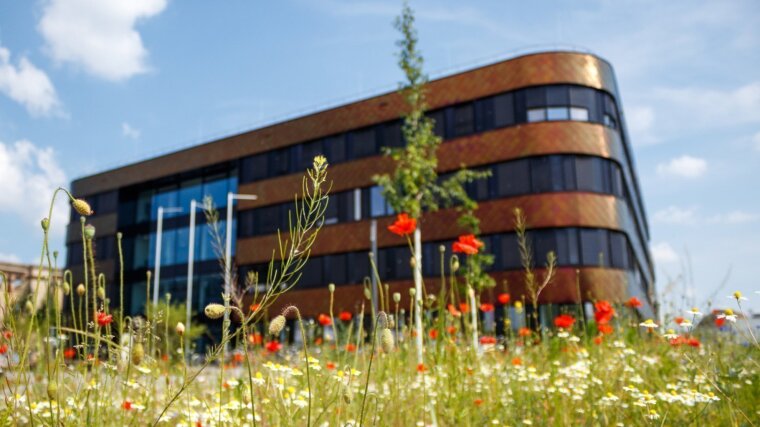
- Life
- Liberty
Published: | By: Kati Kietzmann
Source article
October 1 marks a milestone for iDiv: As of today, permanent funding for the Central German research centre will be provided by the federal states of Saxony-Anhalt, Thuringia, and Saxony, alongside the hosting institutions Martin Luther University Halle-Wittenberg, Friedrich Schiller University Jena, and Leipzig University, in cooperation with the Helmholtz Centre for Environmental Research (UFZ). Since iDiv’s founding in 2012, primary funding has been provided solely by the Deutsche Forschungsgemeinschaft (DFG), which will continue to provide phase-out funding through 2025. Over the past 12 years, the research centre has established an international reputation as a leader in biodiversity research. A new funding model and the centre’s structural transition to a recognised association (e.V.) pave the way for iDiv to continue its important work.
German federal states provide primary funding
With the end of primary funding from the DFG, a new funding model is now in place. In addition to iDiv’s hosting institutions, the three hosting federal states are set to contribute to funding, with the science ministers of Saxony-Anhalt, Thuringia, and Saxony already having signed a declaration of intent in 2019. Project grants will also remain an important part of the iDiv funding model.
With more than 4,000 publications, iDiv has gained a reputation as one of the world’s hotspots for biodiversity research, attracting international researchers and has become a beacon for Central Germany. The centre has grown to include 310 staff from 43 nations, nine professors, and three junior research groups, who are helping create the scientific foundation for the sustainable management of biodiversity.
Legal expert takes over administrative management
Dr Anne Wesemann is taking over the administrative management of iDiv today. Wesemann has many years of experience in academic management, most recently as head of the Rector’s Office at Chemnitz University of Technology. She holds a doctorate in EU law from the University of Sussex in the UK.
Anne Wesemann succeeds Dr Sabine Matthiä, who served as COO of iDiv from 2016 to 2024.
New research group “Biodiversity in the Anthropocene”
Professor Dr Susanne Fritz will take up a new “Biodiversity in the Anthropocene” professorship at Friedrich Schiller University Jena today. She will join the core research group of the same name at iDiv. From 2018 to 2024, Susanne Fritz held a joint professorship at Goethe University Frankfurt with the Senckenberg Biodiversity and Climate Research Centre (BiK-F). There, she investigated how geological climate changes have influenced the extinction and evolution of mammal and bird species and what conclusions can be drawn for current climate change and biodiversity loss. At iDiv, her research will continue to help better predict the future of biodiversity.
“In twelve years, iDiv has become an internationally renowned centre for integrative biodiversity research. The Central German universities in Halle, Jena and Leipzig, the Helmholtz Centre for Environmental Research and the federal states of Saxony-Anhalt, Thuringia and Saxony are paving the way for iDiv’s future”, says iDiv Speaker Professor Dr Martin Quaas. “We look forward to continuing to provide important insights into biodiversity in the coming decades.”
Since 2012, the German Centre for Integrative Biodiversity Research (iDiv) Halle-Jena-Leipzig has been researching the global change of ecosystems and biodiversity as a DFG research centre. The new core research building at Alte Messe in Leipzig was completed in 2020 and today, more than 300 employees are building the scientific foundations for the sustainable use of our planet’s biodiversity. In addition, more than 170 members and their research groups at various locations in Central Germany contribute their expertise to iDiv research.